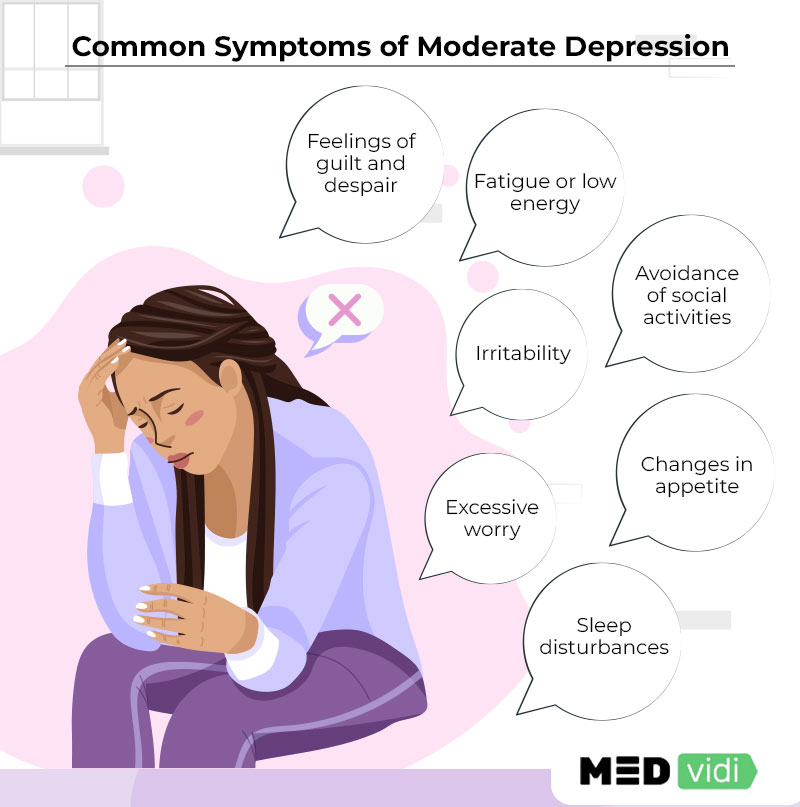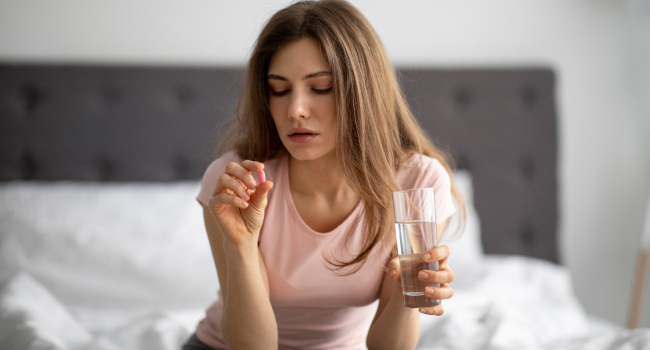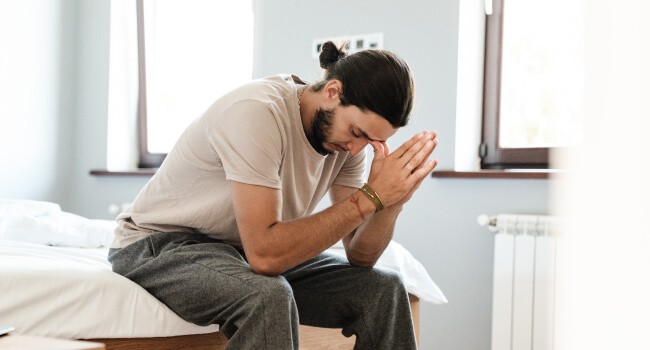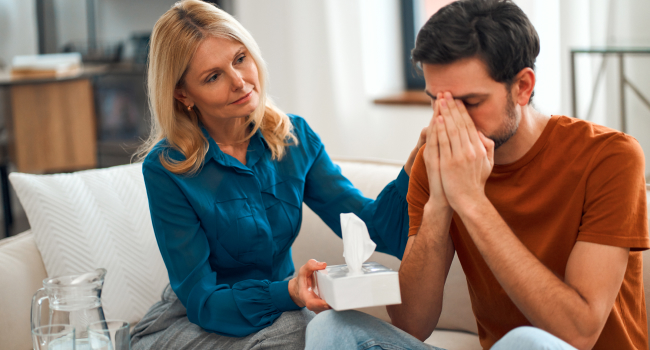While everyone gets stressed or feels down from time to time, moderate depression is a serious mental health problem that can interfere with your functioning and must be treated with care. Besides the associated sadness, depression causes feelings of guilt and worthlessness that do not seem to go away.
According to the
Feeling down for more than two weeks and losing the ability to enjoy the things you liked may be a symptom of depression.
What is Moderate Depression?
No two cases of depression are the same. The symptoms and their intensities vary from person to person. Thus, depression is classified as mild, moderate, or severe, depending on the severity and frequency of the symptoms.
Moderate depression is listed as a course specifier in the
Moderate Depression: Symptoms
Moderate depression is characterized by two primary indicators: persistently low mood and loss of interest in activities. Other symptoms that might occur include:
- Feelings of guilt and despair
- Decline in productivity
- Fatigue or low energy
- Lack of motivation
- Irritability
- Avoidance of friends and social activities
- Sleep disturbances
- Difficulty concentrating and poor memory
- Changes in appetite
- Low esteem and excessive worry
Generally, moderately severe depression occurs more commonly in women than men. But in all patients, the symptoms are severe enough to impair functioning at home, school, and work or cause other social difficulties. Those who are moderately depressed are also at a higher risk of developing physical health issues such as cardiovascular disease.
People with moderate depression symptoms might also experience psychotic features, used as specifiers in the diagnostic criteria.
See a depression consultant to go through a comprehensive symptoms check and get a diagnosis.
Treatments for Moderately Severe Depression
To treat moderate depression effectively, it is essential to see a mental health professional. A doctor will make a diagnosis and recommend appropriate medical and behavioral adjustment measures. Treatment options range from psychotherapy and medications to lifestyle changes.
Psychotherapy
- Cognitive behavioral therapy (CBT) aims to correct maladaptive behavior by challenging negative thoughts associated with depression and replacing them with more positive and realistic thinking. People with depression usually have negative thought patterns such as overgeneralization, all-or-nothing thinking, and automatic negative thoughts. They also tend to magnify problems and take things personally while discounting positive experiences. CBT makes you aware of these maladaptive thought patterns and teaches ways of overcoming them so as to prevent becoming severely depressed.
- Psychodynamic (
psychoanalytic [3*] ) therapy is another form of psychotherapy for treating major depressive disorder. The model focuses on identifying unresolved conflicts in the subconscious mind that would potentially lead to troubled feelings of depression.On the other hand, people with moderately severe major depressive disorder can also learn to regulate their emotions, tolerate distress, and improve their relationships through dialectical behavior therapy, a form of CBT, and interpersonal therapy.
Note: Online psychotherapy services are equally effective in alleviating the symptoms of moderate depressive disorder.
Therapy is an effective treatment option for moderate depression. Contact MEDvidi to know more and see a therapist.

Medications
Several
While antidepressant medications are largely effective, they may cause worsening symptoms or precipitate suicidal thoughts in some people, especially those under 25.
Note: These therapies can be used in combination. For instance, your provider might prescribe medications and recommend psychotherapy simultaneously.
Alternative Treatments
Besides psychotherapy and prescribed medications, mild to moderate depression can be treated using herbal products and lifestyle adjustments.
St. John’s wort is an herbal supplement that alleviates depression symptoms by increasing the serotonin levels in the brain. However, this product can interact with antidepressants, leading to severe adverse reactions like serotonin syndrome. Before using St. John’s wort, consult your doctor.
Coping through lifestyle modification can fasten your recovery from moderate depression. Studies have shown that regular exercise, such as taking a brisk walk for at least two and a half hours a week, can help alleviate depressive symptoms. Mindfulness meditation and yoga are also effective for coping with stressful times. Your therapist can teach you more relaxation techniques to help you cope with the disorder.
Remember to take care of yourself by eating healthy, engaging in activities you like, and seeking social support. Although it might seem difficult, avoid isolating yourself from friends and family when feeling depressed.
Conclusion
Depression affects people differently, with symptom severity and frequency varying from person to person. Moderate depression can influence your ability to function normally and requires prompt, professional intervention. Psychotherapy and medications are the primary treatment options, and at MEDvidi, you can get a personalized treatment plan online.












